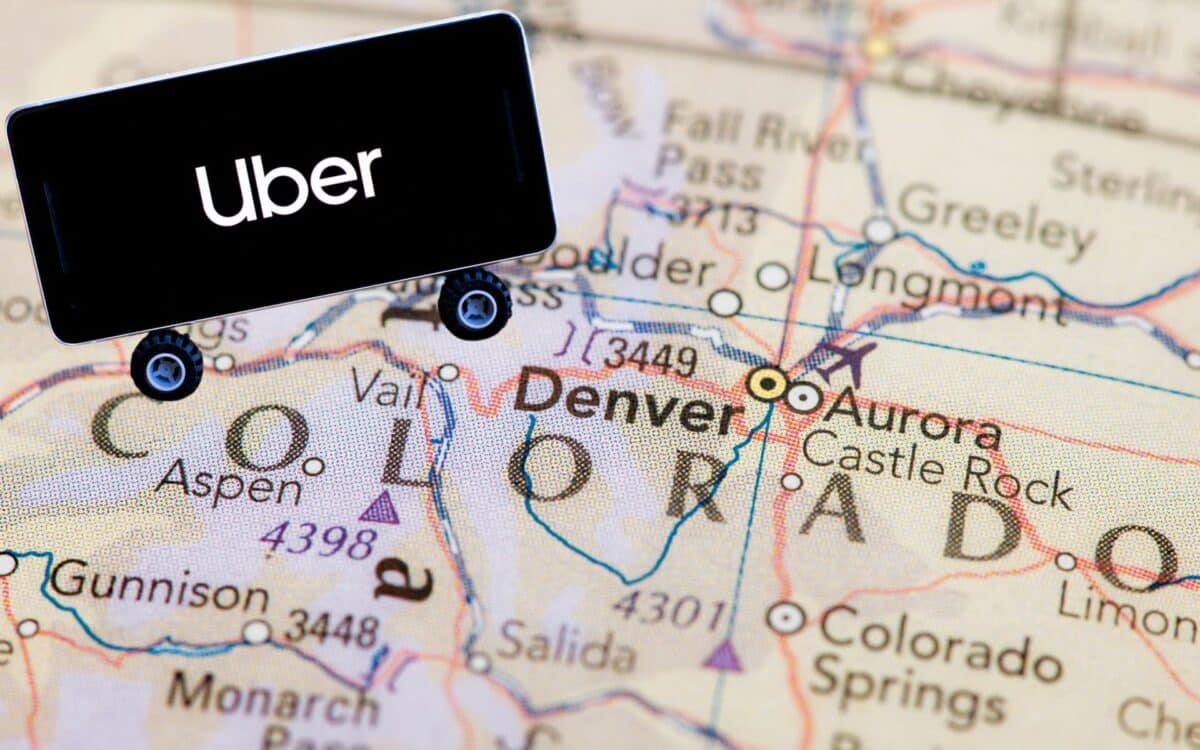Millions of Colorado residents could soon lose access to Uber, as the company threatens to withdraw entirely from the state over a proposed law that would impose new safety requirements on rideshare operations.
The legislation, which has already passed the state House by a wide margin, includes provisions such as mandatory background checks and trip recordings—measures that Uber claims are both intrusive and financially burdensome.
According to Newsweek, the company has warned that continuing service under these conditions may no longer be viable. The potential pullout underscores ongoing tensions between lawmakers and gig-economy platforms over accountability and operational flexibility.
Background on HB25-1291 and Its Legislative Journey
The bill in question, HB25-1291, passed the Colorado House of Representatives with a bipartisan 59–6 vote on April 16, 2025. Introduced in January 2025 by Representative Jenny Willford, the legislation was prompted by her personal experience: in February 2024, she reported being sexually assaulted by a man impersonating a rideshare driver.
The bill aims to
Increase protections for persons engaged with transportation network companies.
It includes several new regulatory measures :
- Criminal background checks for drivers every six months.
- Mandatory audio and video recordings of all rides.
- A ban on drivers offering snacks or drinks, a measure intended to prevent incidents that could raise liability issues.
The proposal has already passed through the Senate Committee on Business, Labor, & Technology, and is scheduled for a full Senate vote on Friday. If approved, it would be sent to the governor for signature.
Uber’s Objections and Threat to Exit
Uber responded strongly after the bill cleared the House. In a statement released on Wednesday, the company warned that if the current version becomes law, it would likely cease operations in Colorado.
An Uber spokesperson told KKTV11:
HB25-1291 is a deeply flawed proposal, which if implemented could leave us no choice but [to] cease operations in Colorado.
It threatens user privacy by requiring every trip to be recorded, imposes major technical and financial burdens, and offers no clear safety benefit in return.We support real, evidence-based safety policy – not legislation that checks a box but fails to deliver. As written, this bill not only misses the mark, it risks doing more harm than good.
The company’s primary objections concern:
- User privacy, citing concerns over mandated recordings.
- Cost burdens for drivers, especially regarding equipment installation.
- Legal exposure, particularly around minor passenger offerings like refreshments.
Representative Willford’s Response and Motivations
Representative Jenny Willford has publicly criticized Uber’s reaction, calling it an attempt to avoid accountability. She has stated that the bill is both professional and personal, rooted in her own experience as a survivor.
In an interview with KMGH-TV, she said:
This legislation has been very personal to me. I decided to use my own pain and the platform that I have to hold a company that has ignored survivors for far too long accountable, and what we saw today — them announcing that they’re going to leave — is them feeling that accountability for the first time in a very long time.
In a more extensive Instagram post on Thursday, she added :
The bottom line is one sexual assault is too many, but for Uber, 8,900 aren’t enough to take action.
This is a cynical and disheartening move by a multi-billion dollar company to turn their back on survivors rather than implement real safety measures. We have worked with Uber in good faith for months and accepted many of their amendment requests – including a full rewrite of the bill.
For years, Uber has checked the box on safety, but time after time failed to deliver for victims. It’s clear Uber won’t stand up for safety so they can continue to maximize profits rather than address the horrible incidents that change the lives of riders and drivers forever.
Industry Precedent and Broader Implications
This is not the first time Uber has made similar threats. In 2024, the company and its main competitor Lyft warned they would pull out of Minneapolis after the city passed a local minimum wage law for drivers.
That standoff ended with a state-level compromise that kept both platforms in the city.
The current debate in Colorado reflects a larger national tension between efforts to regulate the gig economy and companies that depend on flexible, low-regulation business models.
The outcome could influence future legislation in other states, particularly around driver safety, company accountability, and digital privacy.









